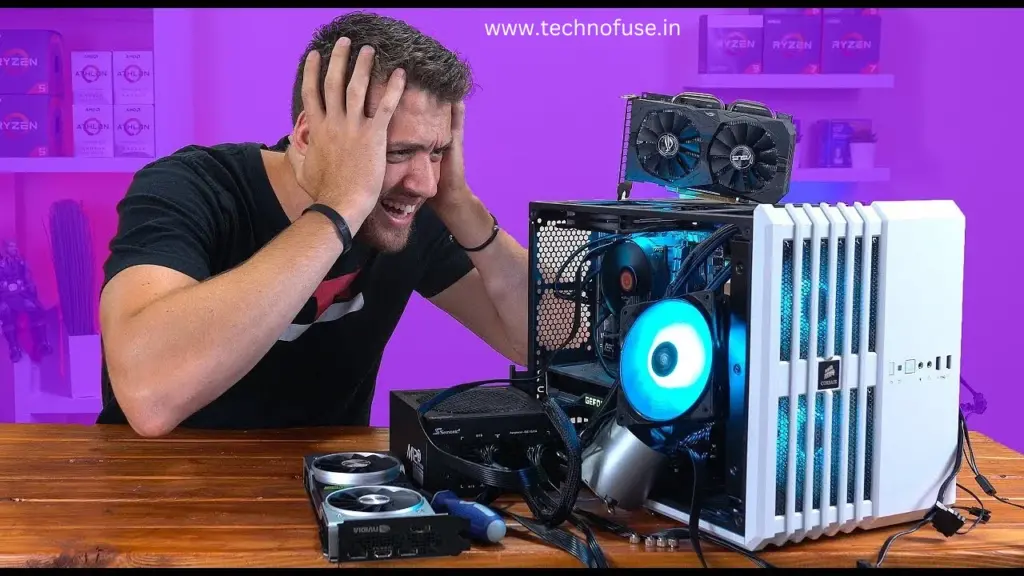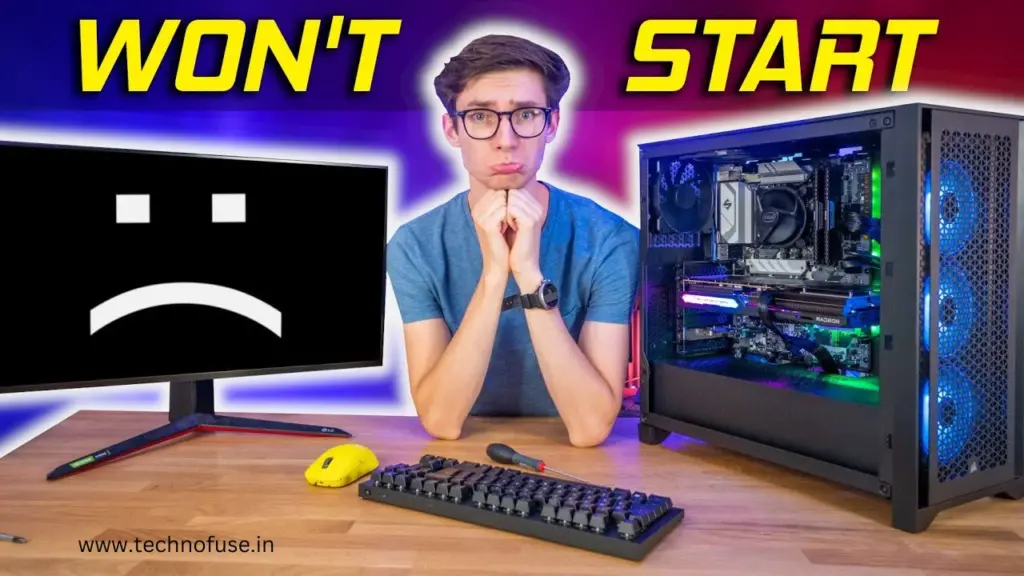Why Your PC Turns Off While Playing Games: Playing games on your PC is one of the most enjoyable ways to spend your free time. However, it can be incredibly frustrating when your PC turns off unexpectedly in the middle of a game. This issue not only disrupts your gaming experience but can also be indicative of deeper problems within your system. Understanding why your PC turns off while playing games is crucial to prevent future disruptions and maintain your computer’s health.
Technical Specifications

Hardware Requirements for Gaming
To understand why your PC may shut down during gaming, it’s essential to consider the hardware requirements. Modern games demand significant resources, including high-performance CPUs, GPUs, and ample RAM. Ensuring your PC meets or exceeds these requirements is the first step in troubleshooting shutdown issues.
Cooling Systems
High-performance gaming generates substantial heat. Effective cooling systems, including CPU and GPU coolers, case fans, and liquid cooling setups, are critical. Inadequate cooling can lead to overheating, a common cause of sudden shutdowns.
Power Supply Units (PSUs)
A reliable power supply unit (PSU) is vital for stable performance. Gaming PCs require high wattage and consistent power delivery. An underpowered or failing PSU can cause sudden shutdowns, particularly under heavy load.
Causes and Risk Factors
Overheating
Overheating is a primary cause of PC shutdowns during gaming. CPUs and GPUs have thermal limits; exceeding these limits forces the system to shut down to prevent damage. Monitoring temperatures and ensuring adequate cooling is essential.
Power Supply Issues
A failing or inadequate PSU can lead to power interruptions. High-power components draw significant electricity, and any fluctuation or deficit can cause the system to shut down.
Software Conflicts
Software conflicts, including driver issues and incompatible software, can lead to instability. Keeping drivers updated and ensuring software compatibility is crucial for stable gaming performance.
Hardware Failures
Faulty hardware components, such as a failing hard drive, RAM issues, or a malfunctioning GPU, can cause unexpected shutdowns. Regular hardware diagnostics can help identify and replace failing components.
Fixed Computer Shuts Down When Playing Games on Windows

Monitoring Tools
Monitoring tools like HWMonitor, MSI Afterburner, and SpeedFan help track temperature, voltage, and fan speed. These tools provide insights into potential overheating or power issues.
Stress Testing
Stress testing tools like Prime95 for CPU, FurMark for GPU, and MemTest86 for RAM can help identify hardware weaknesses. These tests push components to their limits, revealing instability or failures.
Event Viewer Analysis
Windows Event Viewer logs critical events and errors. Analyzing these logs can provide clues about the cause of shutdowns, such as overheating warnings or hardware failures.
Treatment Options
Improving Cooling
Upgrading or adding cooling solutions can mitigate overheating. Options include adding more case fans, upgrading CPU/GPU coolers, or installing a liquid cooling system.
PSU Upgrade
Replacing an underpowered or failing PSU with a higher wattage, quality unit ensures stable power delivery. Brands like Corsair, EVGA, and Seasonic offer reliable options.
Software Updates
Keeping your operating system, drivers, and game software up to date prevents software conflicts. Regular updates from manufacturers and developers fix bugs and improve compatibility.
Hardware Replacement
Identifying and replacing faulty hardware components is crucial. If diagnostics reveal issues with the GPU, RAM, or other components, replacing them restores stability.
Preventive Measures
Regular Maintenance
Regular system maintenance, including cleaning dust from components, ensuring proper airflow, and reapplying thermal paste, helps maintain optimal temperatures.
Overclocking Caution
Overclocking can increase performance but also generates more heat and power consumption. Ensuring your system’s cooling and power supply can handle overclocked settings is essential.
Quality Components
Investing in high-quality components reduces the risk of failures. Quality PSUs, motherboards, and cooling solutions provide better stability and longevity.
Professional Advice
Quotes and advice from IT professionals and hardware experts can provide authoritative insights into preventing and resolving shutdown issues.
Industry Standards
Understanding industry standards for gaming PC components helps make informed decisions about upgrades and replacements.
Conclusion
Addressing PC shutdowns during gaming involves a combination of hardware checks, software updates, and preventive measures. Understanding the causes and implementing the right solutions ensures a stable gaming experience.
FAQ
Q1: Why does my PC turn off suddenly while playing games?
A1: There are several potential reasons why your PC might turn off during gaming, including overheating, hardware issues, power supply problems, software conflicts, and driver issues.
Q2: How can overheating cause my PC to turn off?
A2: Overheating occurs when your PC components, such as the CPU or GPU, get too hot. This can trigger automatic shutdowns to prevent damage. Make sure your PC is well-ventilated and that cooling systems (like fans and heatsinks) are functioning properly.
Q3: What should I do if I suspect my PC is overheating?
A3:
Check temperatures: Use software like HWMonitor or MSI Afterburner to monitor your CPU and GPU temperatures.
Improve airflow: Ensure your PC case has good airflow by cleaning dust from fans and vents and considering additional fans if needed.
Reapply thermal paste: If you are comfortable, reapply thermal paste to your CPU and GPU to improve heat transfer.
Q4: Can a failing power supply cause my PC to shut down during gaming?
A4: Yes, a failing or insufficient power supply can cause sudden shutdowns, especially under the heavy load of gaming. Ensure your power supply has enough wattage to support your components and consider replacing it if it’s old or malfunctioning.
Q5: Could my PC turning off be due to hardware issues?
A5: Yes, faulty hardware like a failing CPU, GPU, or RAM can cause instability and shutdowns. Running hardware diagnostics or replacing suspect components can help identify and solve the issue.
